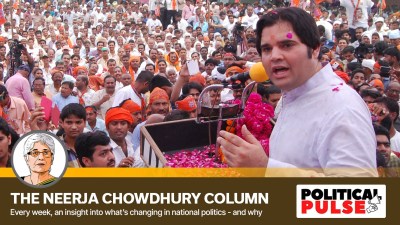- India
- International
Do the right thing
Nation after nation has abolished the death penalty. India must summon the moral courage to follow them.
It can never be right to do injustice or return it”, said Socrates, as he awaited execution in 399 BCE, “or to ward off the suffering of evil by doing it in return”. Today, the Law Commission of India is scheduled to submit a pathbreaking report to the Supreme Court calling for the abolition of the death penalty, with a possible caveat for terrorism-related crimes. In the interim, it seeks a moratorium on judicial execution. It is time for all Indians to reflect on the great philosopher’s proposition. Not one study supports the claim that the death penalty deters violent criminals. The largest meta-study to date, by the United States National Academy of Sciences, shows that the death penalty had no effect at all on crime rates. Indeed, homicide rates in Canada peaked before it abolished the death penalty, and then declined for 10 years running. In the US, homicide rates in non-death penalty states are, on average, lower than in states that execute murderers. Even though the death penalty does not deter killers, it claims the lives of innocents. Since the US reintroduced the death penalty in 1976, new forensic science has cleared at least 87 people awaiting execution. In many cases, innocents were executed.
The facts show that the death penalty is unjust, and unlike all other forms of injustice, it allows for no correction. Yet, in a climate suffused with outrage over violence targeting society, the Law Commission report could set off a charged debate. Indeed, its draft version suggested exempting terrorism-related crimes during the moratorium, hoping to head off one objection. This ought not to surprise us. Egypt, Nigeria, Pakistan, and many other nations beset by terrorism are executing ever-more people. Tunisia’s parliament overturned a 25-year-old moratorium, passing a law allowing the execution of terrorists. There is no evidence to show, though, that killing has made these countries any safer. Indeed, as Tunisian MP Sana Mersni pithily pointed out, execution will not “deter terrorists seeking death in order to go to paradise”.
It isn’t hard to understand why many leaders love the hangman. Fixing a noose around someone’s neck is much easier, after all, than repairing India’s dysfunctional criminal justice and policing system — the real cause of the impunity killers enjoy in this country. For the Indian people, in turn, execution offers at least a simulacrum of justice, no small thing where the real thing is conspicuous by its absence.
To continue to embrace this deceit, though, corrodes the ethical pillars of the polity. Nation after nation has struck the death penalty off its statute book. It is time for India to find the moral courage it needs to follow them.
EXPRESS OPINION
Apr 25: Latest News
- 01
- 02
- 03
- 04
- 05

































